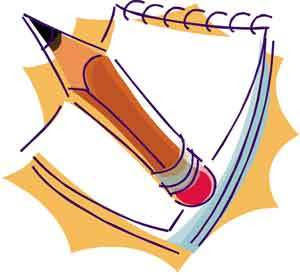The Dimitris & Aliki Perrotis Library has an array of print and electronic resources you can consult and use for the Farm Business Management module.
You can search our Online Public Access Catalog to locate print resources: such as books or magazines.
EBSCOhost Databases and more specifically Academic Search Premier.
UWIC electronic resources. For more information on usernames and passwords consult the Registrar.
These are some web sites we selected for you very carefully.
International Farm Management Association
U.S. Small Business Administration
Elite Farmer
NCDA Market News
AgriBiz
Ag Decision Maker (AgDM)
Friday, October 9, 2009
Tuesday, May 5, 2009
Seminar Announcement
As you all know there has been a change over the referencing system used for your assignments. The transition would be from MLA to Harvard Referencing and it would be effective officially from the new Academic Year 2009 - 2010.
Therefore we decided to hold a two hour seminar taking place at the Library Amphitheater on Tuesday May 12th, 2009 from 12:30 to 14:00.
See you there!
Therefore we decided to hold a two hour seminar taking place at the Library Amphitheater on Tuesday May 12th, 2009 from 12:30 to 14:00.
See you there!
Labels:
Seminar
Monday, April 13, 2009
Interesting articles
The 100th special issue of Organic Farming (Spring 2009) magazine just arrived with some very interesting articles like:
Cover feature: Soil matters p.24
It's a gas: anaerobic digestion: a renewable energy option? p. 29
Unheated tomato production: advice on growing this important glasshouse crop p.40
Organic farming is published by the Soil Association (UK). Check here for more details on the Association.
Cover feature: Soil matters p.24
It's a gas: anaerobic digestion: a renewable energy option? p. 29
Unheated tomato production: advice on growing this important glasshouse crop p.40
Organic farming is published by the Soil Association (UK). Check here for more details on the Association.
Labels:
Interesting articles
Tuesday, April 7, 2009
Grammar Sources continued...

Adjectives & adverbs
Using adverbs
The
Theory on adjectives from the writing center of
Phrasal Verbs & idiomatic Expressions
Theory mainly and some exercises
More phrasal verb exercises
Labels:
Grammar sources
Wednesday, February 18, 2009
Developing a Search Strategy
When you are seeking for specific information on your assignments it is important to develop a search strategy in order to retrieve the best possible results.
* You need to know what you are looking for, so read you topic carefully, identify and underline the most important keywords or phrases.
* Find definitions of unknown terms. Think of synonyms; include singular and plural terms; spelling variations and broader terms.
* Think what type of materials you need: Books, Journals or electronic sources.
* Decide where to begin your search. There are two options: you can use the Library resources and (or) the Internet.
At the Library:
* Locate items using the Library's OPAC (Online Public Access Catalog). There you can find library materials, such as books, contained in a collection in the Library.
* Library print subscriptions of journals and magazines.
* Databases available at you Library. EBSCO is an online reference system accessible via the Internet, which offers a variety of databases from leading information providers.
* Databases available through UWIC libraries. They hold subscriptions to an important number of electronic databases.
On the Internet
You need to be careful when you search on the Internet and check if the information is credible and relevant to the topic. On the Internet you can locate all sorts of information in various forms and through various paths. However, keep in mind the following:
* Thus far, Wikipedia is not considered a credible or appropriate source in the academic environment. It may be used for initila information about a subject, but it is not accepted as source used in papers, projects, or presentations.
* Blogs are not considered appropriate as an appropriate source as well
* Use search engines in a smart way. Use features such as Google Scholar, Google Book, and remember to use the Advanced search options, because you can limit your retrieved results to specific file types for example.
* You can locare useful information on conference web sites, web pages of professional Associations, Organizations or Institutions as well as free online magazines.
* You need to know what you are looking for, so read you topic carefully, identify and underline the most important keywords or phrases.
* Find definitions of unknown terms. Think of synonyms; include singular and plural terms; spelling variations and broader terms.
* Think what type of materials you need: Books, Journals or electronic sources.
* Decide where to begin your search. There are two options: you can use the Library resources and (or) the Internet.
At the Library:
* Locate items using the Library's OPAC (Online Public Access Catalog). There you can find library materials, such as books, contained in a collection in the Library.
* Library print subscriptions of journals and magazines.
* Databases available at you Library. EBSCO is an online reference system accessible via the Internet, which offers a variety of databases from leading information providers.
* Databases available through UWIC libraries. They hold subscriptions to an important number of electronic databases.
On the Internet
You need to be careful when you search on the Internet and check if the information is credible and relevant to the topic. On the Internet you can locate all sorts of information in various forms and through various paths. However, keep in mind the following:
* Thus far, Wikipedia is not considered a credible or appropriate source in the academic environment. It may be used for initila information about a subject, but it is not accepted as source used in papers, projects, or presentations.
* Blogs are not considered appropriate as an appropriate source as well
* Use search engines in a smart way. Use features such as Google Scholar, Google Book, and remember to use the Advanced search options, because you can limit your retrieved results to specific file types for example.
* You can locare useful information on conference web sites, web pages of professional Associations, Organizations or Institutions as well as free online magazines.
Labels:
Search strategy
Thursday, January 29, 2009
Thursday, January 22, 2009
Parenthetical citations: electronic
The past couple of weeks many of you came to ask clarifications on how to formulate parenthetical citations from electronic sources. In this post I will give you 2 examples on how to write them down.
Using parts of texts of electronic resources in your assigments posses certain particularities. First of all web pages are not numbered which means that when you have an online article for example you can't write in the parenthetical citation a page number. However, you can use paragraph numbers.
For example, you have an article of 15 paragraphs written by John Wilson . The sentence(s) of the article you want to copy in your assignment is on paragraph 6. The parenthetical citation would be as follows: (Wilson par. 6). As in print parenthetical citations you write the surname of the author, you write the abbreviation of the word paragraph which is par. and then the corresponding number.
Another issue you are most likely to encounter is to find an article without an author. In this case, and if you believe that the article is suitable for your assignment, you write in the parenthetical citation the title of the article followed by the corresponding paragraph number. If the title of the article is too long you can use the first words of the title.
For example you have an article under the title Agribusiness and you used a sentence from the second paragraph. Your in-text citation will be (Agribusiness, par. 2)
Using parts of texts of electronic resources in your assigments posses certain particularities. First of all web pages are not numbered which means that when you have an online article for example you can't write in the parenthetical citation a page number. However, you can use paragraph numbers.
For example, you have an article of 15 paragraphs written by John Wilson . The sentence(s) of the article you want to copy in your assignment is on paragraph 6. The parenthetical citation would be as follows: (Wilson par. 6). As in print parenthetical citations you write the surname of the author, you write the abbreviation of the word paragraph which is par. and then the corresponding number.
Another issue you are most likely to encounter is to find an article without an author. In this case, and if you believe that the article is suitable for your assignment, you write in the parenthetical citation the title of the article followed by the corresponding paragraph number. If the title of the article is too long you can use the first words of the title.
For example you have an article under the title Agribusiness and you used a sentence from the second paragraph. Your in-text citation will be (Agribusiness, par. 2)
Subscribe to:
Comments (Atom)

